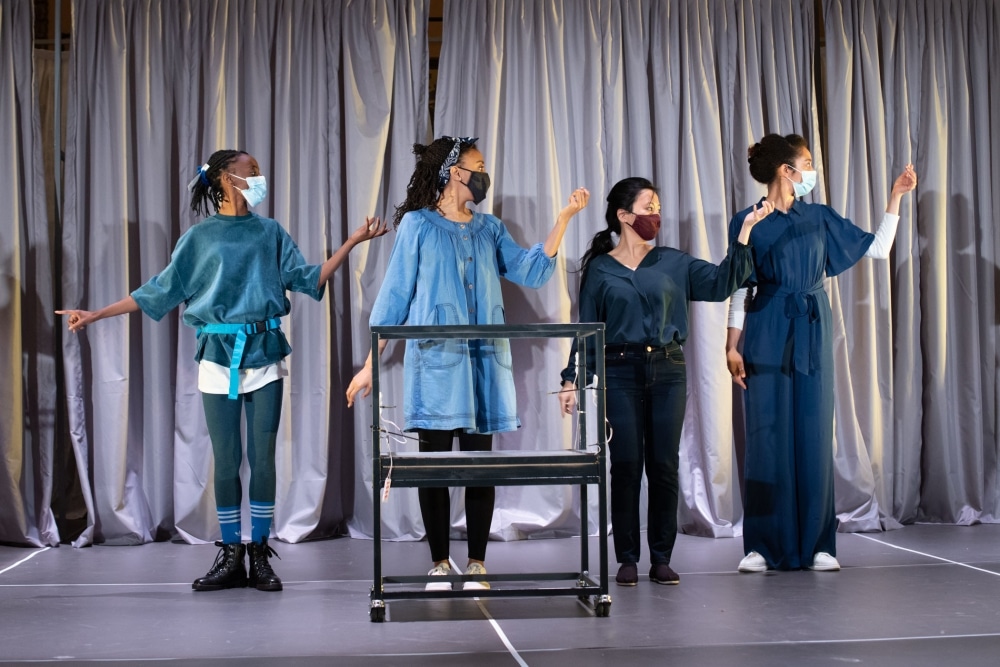Can you please give us a brief synopsis of The Language of Kindness?
It is based on Christie Watson’s memoir about her 20-year career in nursing. She recounts her years as a nurse in London helping the reader understand the hidden world of nurses behind hospital doors. We’ve taken that memoir and translated it to the stage.
How did you come across Christie Watson’s memoir and decide it would make a good show?
Judith Dimant, founder of Wayward Productions, approached me about three years ago to ask whether I’d like to have a go at adapting and directing The Language of Kindness. I read the book and thought: “Yeah, that’s impossible,” – so I said yes!
What has it been like to adapt the work of a living author? Has Christie been involved in the devising process?
It’s been great. Mining into the stories to see what drives the author and her narrative, and at the same time having Christie in the room demonstrating resuscitation techniques. When I first realised that the way to tell the story was with movement, I was worried about what Christie would say. She came in and said that her daughter wanted to be a performer and that our approach was spot on.
The show has been in development and on hold for two years due to the pandemic – what has the impact been on the show? Does Covid-19 feature in it?
Covid can’t help but feature in it. Nurses have become the focus of our daily lives – they are on the news 24/7. We’ve also had to rehearse the show in a socially-distanced way, so no one actually touches on stage and we’re in masks the whole time. It’s a new world and nurses represent the part of society who were at the coalface. We want to celebrate that.
What are the challenges you’ve faced in rehearsing the piece with the restrictions?
The social distancing on stage and actors having to wear masks when they need to speak to each other has been challenging. But these things have also represented a creative challenge, and therefore very exciting new methods of working and staging have come out of the limitations. The more rules, the more creative you can be.
What do you hope the audience will take home with them from the show?
I hope they’ll leave the show with a greater insight into the daily lives of those people who were looking after us this whole year. I hope they leave understanding that empathy and care are the lynchpin of a healthy society, and, as Christie says, that nursing is the most important job in the world – that we all do it, and we all need it.
Do you have any live performances booked yourself as culture reopens in-person?
I hope I can see all the gallery shows. I miss museums and galleries. I’d like to see new work being put on live but I think that’ll take a while to appear.
What’s coming up for you once The Language of Kindness tour finishes?
I’m having a baby, so my lockdown continues!
Do you have any advice for budding young directors who are looking to perfect their craft?
It’s not about who you are but about how you can bring stories to life. Practise your skills and hone your craft. This means directing as much as you can, whatever you can, wherever you can. Don’t trick yourself into thinking that your identity determines what you should work on and silo yourself into one genre or narrative. Explore and create in abundance.
To book tickets, which start from £25, visit assemblyhalltheatre.co.uk
There will be a free post-show discussion panel featuring the author of The Language of Kindness, Christie Watson, and members of the cast tonight (Thursday May 27).
The Language of Kindness is co-produced with the Assembly Hall Theatre, Complicité and Warwick Arts Centre in association with Shoreditch Town Hall and Guy Chapman.
Photo: Sarah Ainslie








